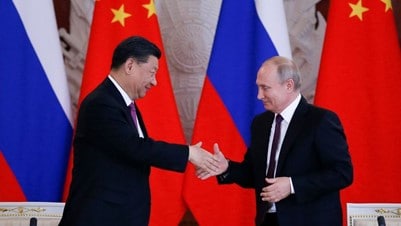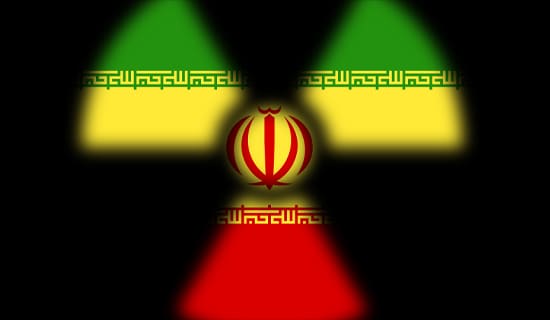On February 4, 2022, Russia and China published a joint statement on "the International Relations Entering a New Era and the Global Sustainable Development." The statement focused on seeking "multipolarity" in order to put an end to the U.S.-led unipolar order, and stressed that Russia and China aim to strengthen a Eurasian partnership.[1]
It is notable that in 2019, "Toutiao Q&A," a Q&A community launched by the Chinese platform Toutiao, which along with TikTok is owned by the Beijing-based Internet giant ByteDance, had published the question "Which country has done the most harm to China in modern times?" Many Internet users responded, and the unanimous answer was "Russia, without a doubt."
In particular, one user stated: "In modern history, the reason why Russia's 'harm' is so great is because no matter what China did, China cannot escape Russia's means of control. And whether Russia plundered and invaded, or gave generous assistance, its purpose has always been to completely control China. In the face of Russia, China has a kind of despair that there is no way to escape... It is precisely because the threat from the North is always with us that we never forget to strive for self-improvement."
Below are two of the answers to the 2019 Q&A question on Toutiao:[2]

(Source: Twitter)
'In The Face Of Russia, China Has A Kind Of Despair That There Is No Way To Escape'
Q: "Which country has done the most harm to China in modern times?"
Author: "Quiet Night History (A high-quality creator in the field of history)"
"Russia, without a doubt.
"Since the outbreak of the Opium War in 1840, our country endured 109 years of humiliation. During this time, foreign powers scrambled to carry out barbaric aggression against our country. Our country not only ceded land and paid indemnities, but also lost almost all opportunities for economic development.
"From the 'Kingdom of Heaven,' where all nations paid tribute, to the 'Sick Man of East Asia,' who could be bullied by everyone, all the great powers invaded and plundered China. Of all the great powers, the author believes that the one that did the most damage to our country was Russia. This is due to the following reasons:
1. Nightmare of Geographical location
"The 'harm' caused by Russia is so great because Russia is the only country among all the great powers that directly borders our country. This means that even if Russia was relatively backward among other powers, it had the advantage of being close to China geographically.
"Russia has always been in a relatively backward state among all the great powers. When Britain, France, the United States and Germany and other countries embarked on the road of industrialization through the industrial revolution, Russia was still faltering under the serf system. It was not until Russia was defeated in the Crimean War that there was an internal crisis, and then serfdom was abolished in 1861. But Russia was still quite backward compared to other powers, so Lenin described Russia as the weak link in the imperialist chain.
"Precisely because it didn't enter the industrial age, Russia had continued its previous barbaric method for plundering territory, which caused our country, which is close to Russia, to suffer tremendously.
"Before the mid-Qing Dynasty, when the Qing was still strong, Russia's southward movement into Asia had little success. However, as the Qing Dynasty changed from a strong country to a weak country, Russia took the opportunity to start barbaric aggression and encroachment.
"After the outbreak of the Second Opium War in 1856, Russia took advantage of the crisis the Qing was tangled in to seize more than 1.5 million square kilometers of land in the outer northeast and outer northwest. Not only that, Tsarist Russia also infiltrated wildly into Mongolia and Tannu Ulianghai.
"At the end of the 19th century, Tsar Nicholas II concocted the notorious 'Yellow Russia' plan, drawing a straight line from K2 in Xinjiang to Vladivostok, and said all the land north of the line was owned by Russia. Once this plan succeeded, the borders of our country would stop at the Great Wall!
"After Russia's fiasco in the Russo-Japanese War in 1905, Russia had to withdraw from the Northeast. Although we saw the bankruptcy of the 'Yellow Russia' plan, Russia's coveting of Mongolia has never stopped.
"In 1911, when the Revolution of 1911 broke out, the Qing Dynasty was in chaos. Russia immediately instigated the separation of Mongolia's upper classes and frantically attacked Xinjiang and Inner Mongolia.
"Although due to the threat of foreign powers and the impact of the collapse of Tsarist Russia in World War I, Mongolia did not become a Russian territory, but it became a Russian colony. Except from 1919 to 1921, when the Beiyang government briefly took back Mongolia, the rest of the time Mongolia was completely torn from our country's territory. Later, Mongolia established a constitutional monarchy government in 1922, a republic in 1924, recognized by the Nanjing National Government in 1945, and joined the United Nations in 1962.
"Tannu Uriankhai was 'accepted' by the Soviet Union in 1944 and became part of Russia.
"Russia's barbaric plundering of northern China had an extremely severe influence on China. In addition to losing more than 3 million square kilometers of land, China's natural boundaries established before the mid-Qing Dynasty were also eroded.
"Today, near the 58th parallel north, is the nomadic northern boundary of East Asian nomads, and it is also the watershed between East Asia and Siberia. Although the Qing Dynasty did not completely occupy this place, through a series of boundary treaties, the Qing Dynasty controlled a range of commanding heights from Sayan Mountains to Outer Xing'an Mountains, forming a strong resistance to Tsarist Russia's southward strategy.
"However, the encroachment of Tsarist Russia, especially the division of Mongolia, has always endured huge threats to the vast areas of Northeast China, North China and Northwest China. As Major General Ding Wei said in the Chinese TV series 'Show the Sword,' 'there is no natural barrier to defend in northern China.' This is why China has 'unified' Inner Mongolia and has been stationing heavy troops in Daqingshan.
"The most terrifying thing is that the Soviet Union left behind a terrible nuclear arsenal, which means that before Russia disintegrates for the second time, this situation of China being completely suppressed by Russia cannot be changed at all, even though China's comprehensive national strength has always been expanding.
"'China can't escape Russia's means of control' – 'we can only play a secondary role; and we have never been able to reunite Mongolia, as China's lost territory, with China.'
2. The nightmare of the development path
"Many people say that the country that hurts China the most in modern times is Japan, because Japan began to covet China in the Tang Dynasty a thousand years ago, and twice invaded China in modern times. The Sino-Japanese War drove China further into being a semi-colony, and the war of aggression against China almost subjugated China.
"This statement is not unreasonable, but after all, Japan is small in size and is still geographically distant from China. It is difficult for such a country to have a deep influence on China itself.
"But Russia is different, because it has a long border with China, and its size is huge. China in modern history not only suffered the great pain of Russian aggression, but also had to accept the profound influence of Russia from the inside out.
"As the main opponent of the Qing Dynasty, if we say that starting from the Battle of Yaksa in 1685, what Tsarist Russia and the Qing Dynasty competed for was only the control of the vast area of Mongolia. Then from the October Revolution in 1917, the target of Russia's competition began to shift from Mongolia to the whole of China.
"Both Lenin and Stalin had ambitions to fully control China, which made Russia not only China's main enemy, but also a 'great mentor' for China's modernization exploration.
"In theory, the Soviet Union, which has been governed by a communist party, should go hand in hand with the Chinese Communist Party, which shared the same belief, but Stalin always flirted with Chiang Kai-shek. Since 1923, when he supported the construction of the Whampoa Military Academy, Stalin was always Chiang's important partner.
"Even in 1945, when Generalissimo Chiang was forced to recognize the separation of Mongolia, Stalin gave the reason as being in the name of 'anti-Communism.'
"From the standpoint of the Soviet Union, Stalin's pragmatic methods are understandable. Chiang Kai-shek, who focused on safeguarding the interests of the four major families, cannot represent the general direction of China in any case. Therefore, for China, Stalin's various methods are extremely vicious. For example, in the eve of the People's Liberation Army's (PLA) 'Battle of Crossing the Yangtze River,' the Soviet embassy followed the Nanjing Nationalist government to Guangzhou, and Stalin also suggested that the CCP accept a proposal to establish two regimes of the Kuomintang and the Communist Party with the Yangtze River as the boundary. He blatantly wanted a North China and a South China, and his intention to control China is obvious.
"After the founding of the People's Republic of China, because there was no defensive barrier in the north, and the United States invaded China at that time, China could only choose to completely fall to the Soviet Union and form an alliance with the Soviet Union. In the 1960s, when China and the Soviet Union became hostile, the Soviet Union's oppression on China made China suffer a lot for a while.
"Because of the special relationship between China and the Soviet Union, the People's Republic of China was deeply influenced by the Soviet Union in the early days of its establishment. This influence was extremely profound and comprehensive, such as in all aspects of our daily life, and in liberal arts and science education, and this influence has continued to this day.
"What is even more frightening is that this neighbor will not move away, and it has had some common experience with China, which determines that China can only adopt an attitude of cooperation with Russia instead of confrontation. And because of China's strategic position in various dilemmas, we can only play a secondary role; and we have never been able to reunite Mongolia, as China's lost territory, with China.
"In modern history, the reason why Russia's 'harm' is so great is because no matter whatever China did, China can't escape Russia's means of control. And whether Russia plundered and invaded, or gave generous assistance, its purpose has always been to completely control China.
"In the face of Russia, China has a kind of despair that there is no way to escape. In this respect, Japan cannot be compared with Russia.
"However, it is precisely because the threat from the north is always with us that we never forget to strive for self-improvement. Today China's comprehensive national power has already belonged to a first-class power, but we have not stopped our footsteps because of this.
"On the contrary, we firmly believe that we can fly higher and farther, and this determination to keep moving forward is thanks to Russia's harm to China.
"'International monopoly capitalism' harmed China most. 'The country that has hurt all the countries in the world the most is the United States, which is under the control of monopoly capitalists.'
'It Is Evidently True That The Polar Bear Of The North Has Done Us The Most Harm'
Author: "Lao Sun's Firearm Workshop (quality creator in the field of history)"
"Many people believe that it was Japan who did the greatest harm to modern China, but in fact it was our neighbor, Russia.
"Generally speaking, the Opium War was the beginning of China's humiliating history in modern times, but in fact, Britain did not colonize China at that time. Even after the second Opium War, European and American countries' policies towards China were mainly aimed at expanding the market. Russia, who had been watching China for a long time, directly took the opportunity to force the Qing government to sign the Treaty of Aigun and the Beijing Treaty. This took away 1.04 million square kilometers of land in northeast China, fulfilling Russia's wish that had been unsuccessful since the Battle of Yaksa.
"Then Tsarist Russia came up with the Yellow Russia Plan, which was designed with the goal of pushing the border between China and Russia down to the Great Wall.
"In 1864, Tsarist Russia, together with the Kokand Khanate, invaded China's Xinjiang and occupied a large area of land.
"During the Eight-Nation Alliance's invasion of China in 1900, Tsarist Russia carried out a massacre of the ethnic Chinese living in Hailanpao (Blagoveshchensk) and Sixty-Four Villages on the East Side of the Heilongjiang River, with the purpose of taking over eastern and northern Heilongjiang for Russian occupation. Then Russia marched into northeast China. On October 6, 1900, the Russian armies joined forces in Tieling, and from then on, the major military towns in northeast China were also occupied by Russia.
"In 1905, Japan luckily defeated Russia in the Russo-Japanese War, thus temporarily halting Russia's Russo-Yellow plan. Although it was an invasion, it indirectly saved China. During the period of Russian occupation, massacres and violence at the hands of the Russians were worse than that of Japan, which caused great damage to the economy and culture of northeast China.
"The Xinhai Revolution broke out in 1911, causing the Qing dynasty to begin to fall. Tsarist Russia took the opportunity to incite Mongolian tribes such as the Khalkha in an effort to split Mongolia from China. Although Mongolia did not officially become Russian territory, it did become a Russian colony.
"Even after the Soviet government was established, the Soviet Union continued to blackmail China, just like Tsarist Russia did before it.
"After the October Revolution, the Soviet Russian government issued a declaration to China, saying that it would give up all the interests that Tsarist Russia had plundered from China, but later it no longer recognized this account. In fact, the Soviet Union completely retained the aggressive tradition of chauvinism from Tsarist Russia. Not only did the Soviet Union inherit one million square kilometers of land along with a large number of rights and interests that Tsarist Russia plundered from China, it also continued to illegally garrison troops in China's Tannu Uriankhai and Outer Mongolia.
"In August 1937, the Sino-Soviet Non-Aggression Pact was signed with China right after the outbreak of the Anti-Japanese War. However, later on Russia broke its promise and signed the 'Soviet-Japanese Neutrality Pact' with Japan in 1941, during the most difficult period of the Anti-Japanese War in China. The Chinese government was quick to express a serious protest to the Soviet Union. The Soviet Union also sold the Chinese Eastern Railway to Japan at a low price.
"At the Yalta Conference in 1944, the Soviet Union stated that the precondition for sending troops to northeast China was that the government of the Republic of China must recognize the independence of Mongolia and allow Dalian to be leased as the military port of the Soviet Union in the Far East.
"From the multitude of events throughout history, it can be said that from the beginning of modern times to the end of modern times, Russia has been ravaging China. It is evidently true that the polar bear of the north has done us the most harm."
[1] See MEMRI Special Dispatch No. 9755, Joint Russia-China Statement: 'The Russian Side Reaffirms Its Support For The One-China Principle... And Opposes Any Forms Of Independence Of Taiwan,' February 7, 2022.
[2] Wukong.toutiao.com/answer/6739891170513518859/, September 2019.








